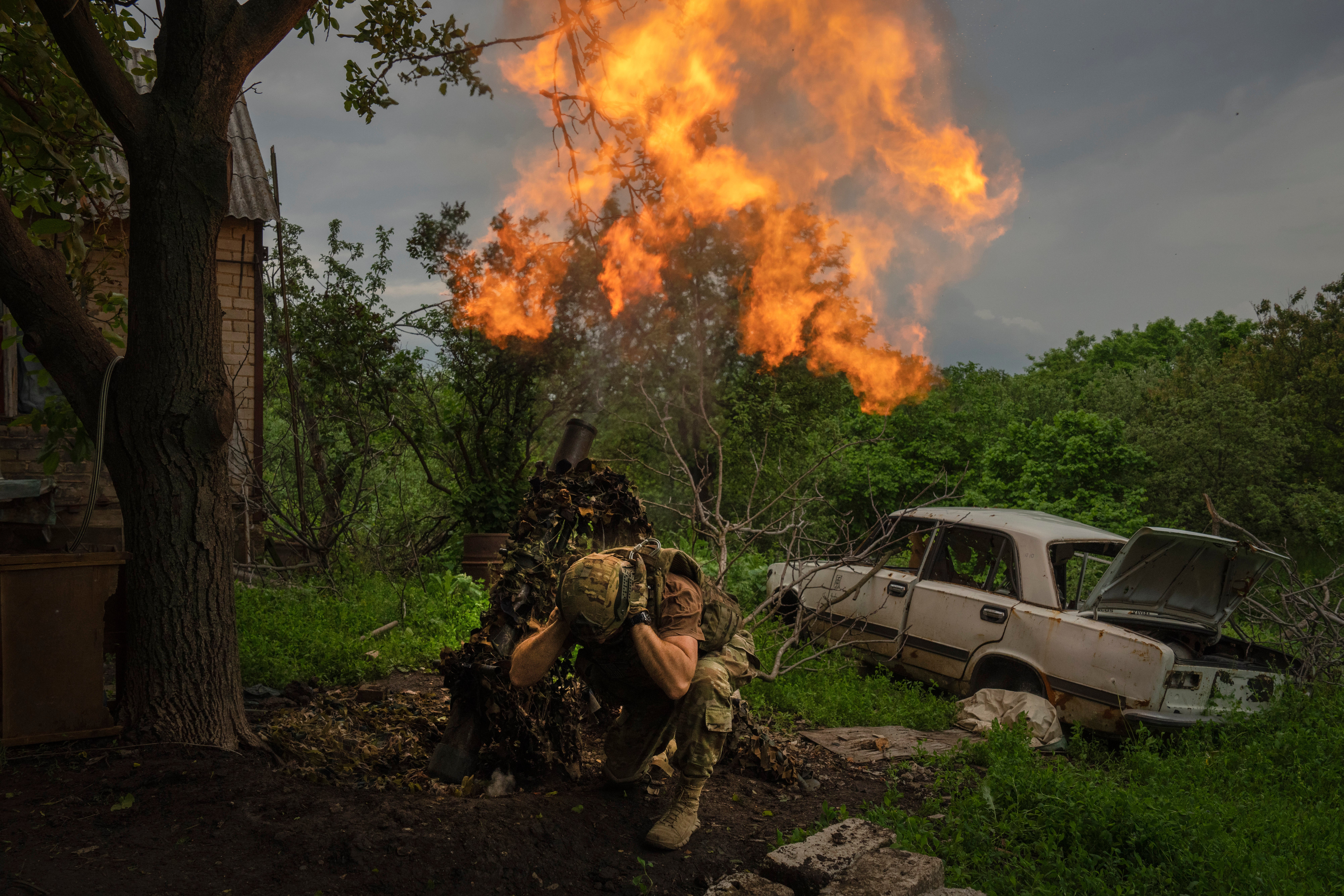Ukraine needs to keep Russia guessing to stay one step ahead of Pinocchio Putin’s propaganda machine
We may – or may not – have seen the start of Kyiv’s counteroffensive, writes Chris Stevenson. That haziness is crucial to Ukraine


Whether or not the attacks on Russian lines in the eastern region of Donetsk end up being seen as the start of Ukraine’s long-awaited counteroffensive, the information war around them is in full swing.
For Russia’s defence ministry, its troops repelled a “major offensive” in Donetsk, killing 250 members of the Ukrainian forces and destroying a number of tanks and armoured vehicles at five points across the region’s frontline. Moscow was bullish, as it always is – but Russia’s community of military bloggers was more circumspect. Igor Girkin, one of the better known such personalities, said the official statements were “not quite true” and that “the enemy managed to cut into our position” and make some territorial gains. He was not the only one, with the various reports undercutting the sanitised Kremlin narrative.
Russia’s president, Vladimir Putin, along with his defence officials and military chiefs, was always going to try to wring what propaganda he could out of Ukraine’s military movements. After 15 months and a winter offensive of Russia’s own that swiftly became a war of attrition as Ukrainian troops (mostly) held their lines, Putin needs a way to boost morale, and his claims about putting down “major” attacks play into that goal. There will be few in Russia who still believe Moscow is involved in a “special military operation”, as the Kremlin continues to insist on calling its invasion, rather than a full-scale war – and so positive news about the frontline will be key for Putin.
As for the government in Kyiv, it knows the value of staying vague. Putin and the Kremlin have plenty of previous when it comes to exaggerating both the number of enemy troops killed and the significance of events: the main concern of the Russian leader is that his citizens believe he retains the requisite level of control.
Kyiv has to box clever in order to stay one step ahead of the Putin propaganda machine. Responding seriously to what his state media pumps out is not worth the effort: it only increases the Russian leader’s appeal to his domestic audience. An arch, cryptic response, or just calling it fake news – a ubiquitous tactic of the Kremlin itself when it wants to dismiss a topic – stops Kyiv from getting bogged down in tit-for-tat claims about numbers.
Both sides can see the value of maintaining the fog of war. For Pinocchio Putin, it allows for the construction of the key narrative of control by massaging the message. Those in Kyiv also know that numbers are difficult to verify, so there is little point in repeated claims; they would rather frustrate the Kremlin, in the hope that it slips and responds to something it shouldn’t, or lets out more information than it wants to.
Ukraine’s strongest suit – at least for now – is the element of surprise, and the associated confusion in the Russian ranks. Given the difference in the military supplies available to the two nations – even with the help provided to Ukraine by Western allies – the fact of Moscow not knowing where or when Kyiv will focus its attacks is significant.
On Sunday, Ukraine’s defence minister, Oleksii Reznikov, posted a message on Twitter, quoting from the Depeche Mode song “Enjoy the Silence”. “Words are very unnecessary/ They can only do harm,” he wrote. Ukraine’s armed forces also released a video on social media showing numerous soldiers in various locales putting their fingers to their lips, something very shareable that gives no information to Russia.
Attacks such as those in Donetsk may be the Ukrainians probing the frontlines, looking for a big enough weakness to exploit with a larger push of troops. In tandem with the advances it says it is making around the eastern city of Bakhmut, which Russia has previously claimed to control, they leave Moscow with multiple theatres of war to worry about.
Both on the battlefield and off it, Kyiv wants to keep Putin and his military chiefs guessing. Do that, and he is deprived of the powerful propaganda he craves.



Join our commenting forum
Join thought-provoking conversations, follow other Independent readers and see their replies
Comments